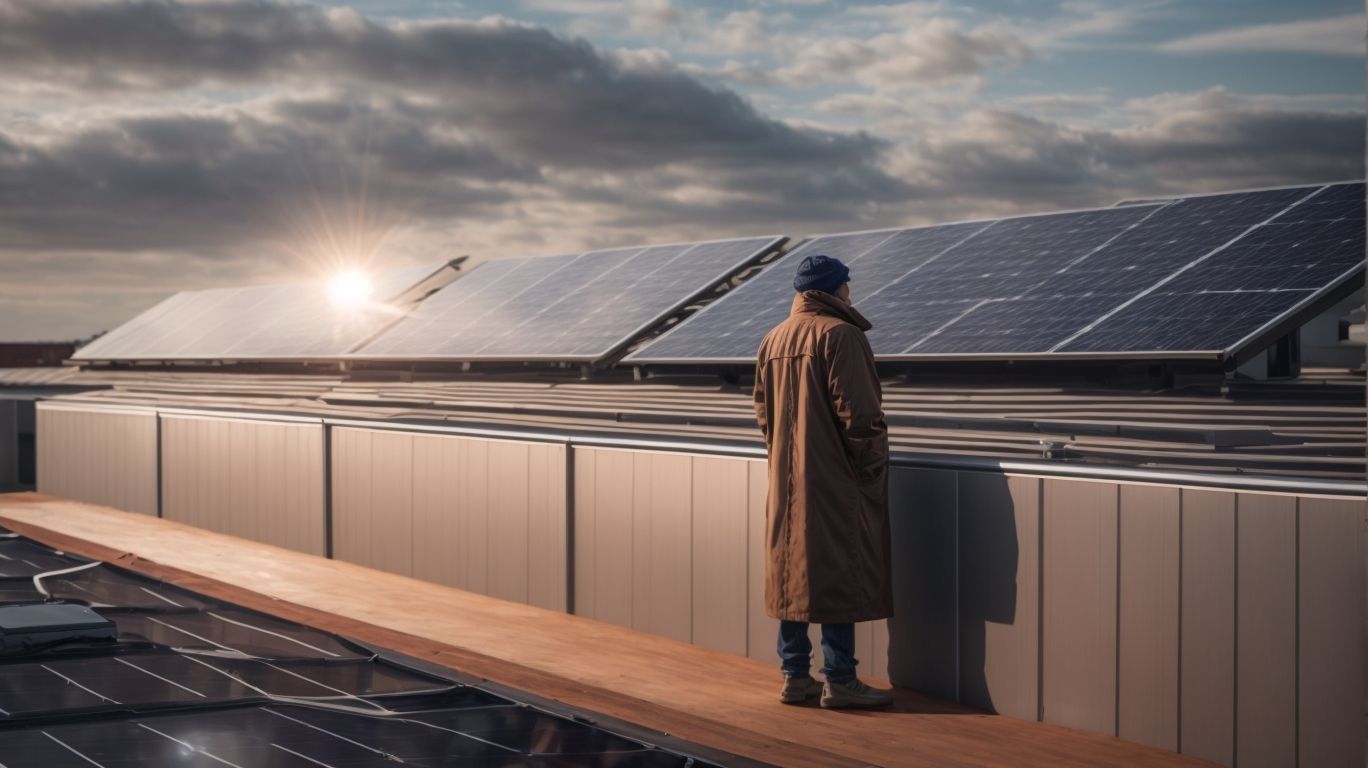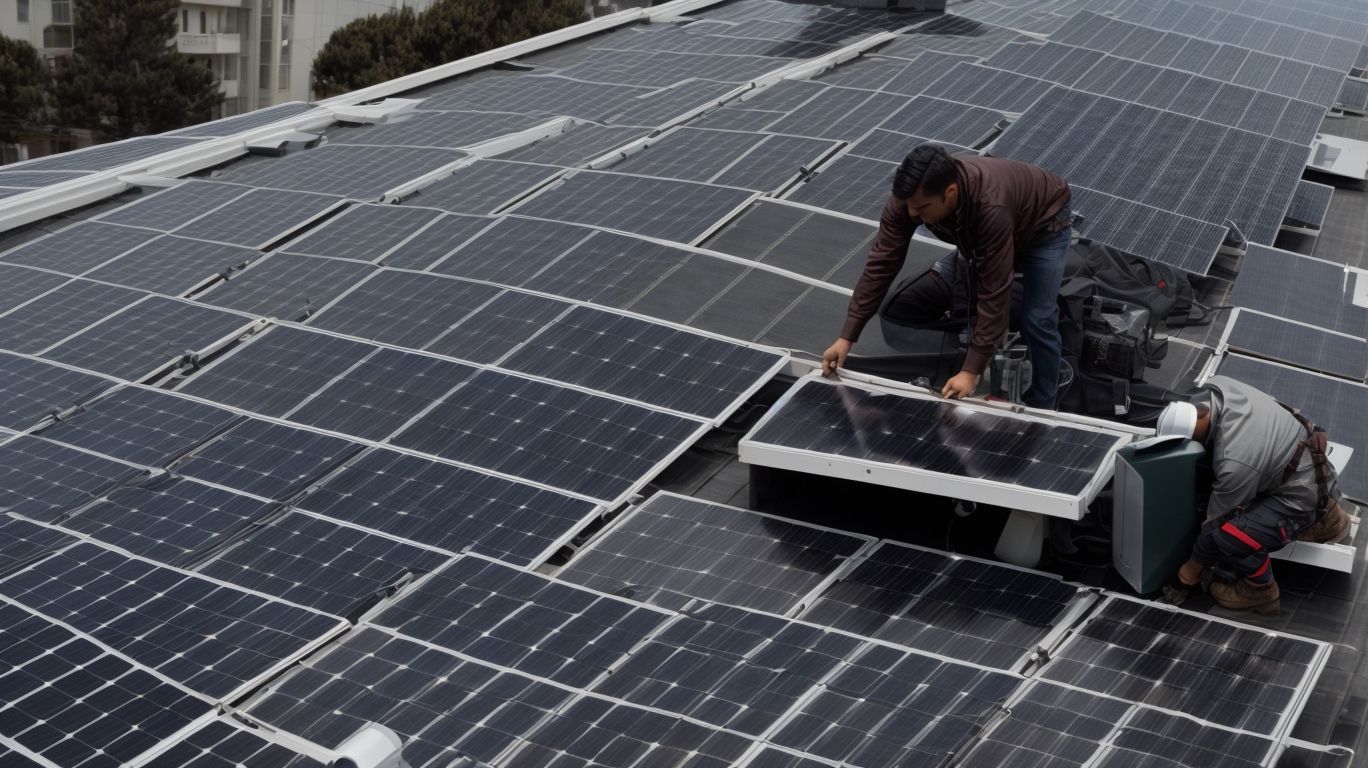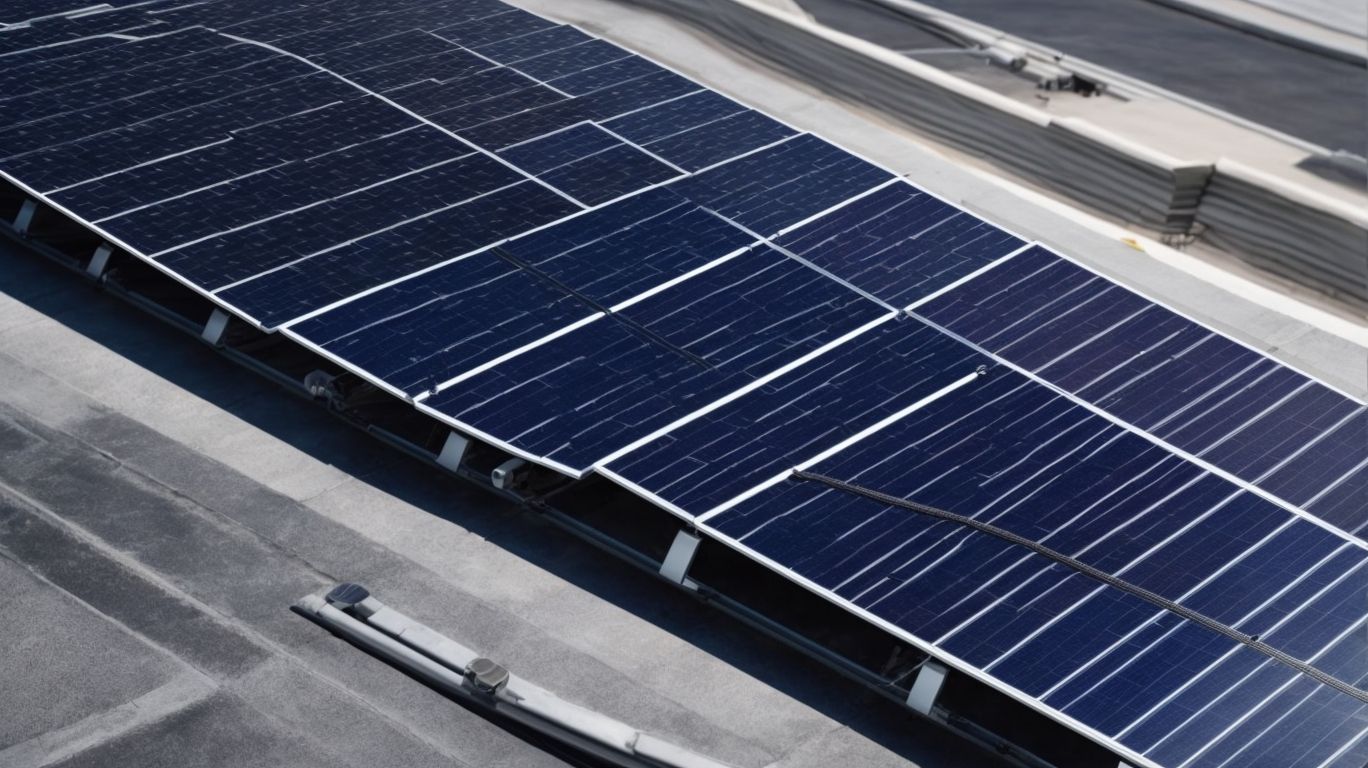
Questions to Ask Before Hiring a Solar Panel Support Contractor
Thinking about installing solar panels on your home or business?
Before you take the plunge, it’s important to find the right solar panel support contractor to ensure a smooth and successful installation process.
Learn about the qualifications you should look for in a solar panel support contractor, the services they offer, the costs involved, and the key questions you should ask before making your decision.
Let’s dive in!
Why Hire a Solar Panel Support Contractor?
Hiring a solar panel support contractor is essential to ensure the efficient functioning and maintenance of your solar energy system.
By enlisting the expertise of a professional contractor, you can rest assured that your solar panels are being installed correctly and efficiently. These professionals have the knowledge and experience to navigate the complexities of solar energy systems, ensuring that everything is set up optimally for maximum performance.
In addition to installation, ongoing maintenance is crucial in preserving the longevity of your system. Professional contractors offer regular check-ups and repairs, helping to prevent any potential issues before they escalate. This proactive approach not only enhances the efficiency of your system but also provides peace of mind knowing that your investment is well taken care of.
What Qualifications Should a Solar Panel Support Contractor Have?
When choosing a solar panel support contractor, it is crucial to consider their experience, qualifications, licensing, and insurance coverage.
Experience plays an integral role in assessing a contractor’s ability to handle complex solar energy projects effectively. A seasoned contractor often brings a wealth of knowledge and practical skills to the table, which are essential for ensuring the installation process runs smoothly.
Technical expertise is another key factor to evaluate when selecting a contractor. Having a deep understanding of the latest solar technologies and industry best practices can significantly impact the quality of the final installation.
Adherence to local regulations is non-negotiable in the solar energy sector, as it ensures that the installation meets all necessary safety and quality standards, benefiting both the client and the environment.
Licensing and Certification
A solar panel support contractor must possess the necessary licensing and certification to demonstrate their qualifications and technical expertise in the installation and maintenance of solar energy systems.
This licensing process typically involves meeting specific educational requirements and undergoing training programs to ensure that contractors have the knowledge and skills to handle solar panel projects effectively. In addition, certification exams may be required to assess their understanding of safety protocols, electrical systems, and industry best practices. By obtaining proper licensing, contractors also commit to adhering to industry standards and regulations, which play a crucial role in ensuring the safety and reliability of solar installations.
Therefore, hiring a licensed professional for your solar panel project is essential for receiving high-quality service and complying with legal requirements.
Experience and Expertise
Experience and expertise are critical factors to consider when evaluating a solar panel support contractor, as they directly impact the quality and reliability of the services provided.
An experienced contractor brings a wealth of knowledge and practical skills to the table, which is essential for seamless installation, effective repairs, and regular maintenance of solar panel systems. Their ability to troubleshoot issues efficiently and implement solutions promptly is key to ensuring that the system operates at its peak performance. By relying on a seasoned professional with a proven track record, clients can have peace of mind knowing that their investment in solar energy will yield optimal energy savings and long-term benefits for their property.
Insurance Coverage
Insurance coverage is a crucial aspect of a solar panel support contractor’s qualifications, providing protection for both the contractor and the client in case of accidents or damages during the project.
Liability insurance is essential for solar panel contractors as it covers damages or injuries that may occur on the client’s property. With the intricate and technical nature of solar panel installations, errors or accidents can happen, making this type of insurance invaluable.
Worker’s compensation insurance is vital to protect workers in case they are injured while working on a project. By ensuring that a contractor has these coverages in place, clients can have peace of mind knowing that any unforeseen circumstances are adequately addressed.
What Services Does a Solar Panel Support Contractor Offer?
A solar panel support contractor offers a range of services including installation, maintenance, and upgrades to ensure the optimal efficiency and performance of your solar energy system.
They specialize in meticulously installing solar panels on rooftops or grounds, taking into account the positioning for maximum sun exposure. Regular maintenance schedules are crucial to uphold the system’s efficiency and prevent potential issues.
These contractors also conduct thorough inspections to identify any problems and provide timely solutions, ensuring that your solar energy system continues to operate seamlessly. They can recommend and implement system upgrades to enhance performance and keep up with technological advancements in the solar energy industry.
Installation
The installation of solar panels by a qualified contractor involves precise technical expertise and the use of specialized equipment to ensure the system is set up correctly for optimal performance.
- During the installation process, solar panel contractors need to possess a deep understanding of electrical systems and structural engineering to guarantee accurate panel placement.
- They are responsible for configuring the system to maximize energy production and efficiency.
- Utilizing high-quality equipment such as solar panel mounts, inverters, and monitoring systems is crucial to ensure the longevity and effectiveness of the solar energy system.
- Proper tools like solar panel racking, wiring, and testing devices are essential for the meticulous installation process, ultimately contributing to the durability and functionality of the solar power setup.
Maintenance and Repairs
Maintenance and repair services offered by a solar panel support contractor are crucial for ensuring the ongoing functionality and reliability of the solar energy system.
Regular maintenance procedures, such as inspections, cleaning, and performance monitoring, play a key role in optimizing the efficiency of solar panels. Through these regular checks, contractors can identify any issues or potential problems before they escalate, preventing unexpected downtime and ensuring seamless operation. Timely repairs and troubleshooting are essential in addressing any system malfunctions promptly, which is crucial in preventing efficiency losses and maximizing the lifespan of the solar energy system. By entrusting these tasks to experienced professionals, homeowners can enjoy the benefits of solar energy with peace of mind.
Upgrades and Replacements
Solar panel contractors offer services for system upgrades and component replacements to enhance the efficiency and performance of existing solar energy systems.
These professionals stay updated on the latest advancements in solar technology to provide clients with recommendations tailored to their specific energy needs. By upgrading to newer technologies or installing more efficient components, homeowners can significantly improve their overall energy savings and reduce their environmental impact. Contractors play a vital role in assessing the current system’s performance and identifying areas where enhancements can be made to optimize energy production. This collaborative approach ensures that clients benefit from the most effective and cutting-edge solutions available in the solar energy industry.
What Are the Costs Involved in Hiring a Solar Panel Support Contractor?
The costs associated with hiring a solar panel support contractor include consultation fees, equipment costs, labor expenses, and any necessary permits or assessments for the installation or maintenance of solar panels.
- Consultation fees cover the initial assessment where the contractor evaluates the site for solar panel feasibility.
- Equipment costs involve the purchase of solar panels, inverters, mounting hardware, and wiring needed for the installation.
- Labor expenses encompass the costs associated with installation, wiring, and any maintenance work needed.
- Permit costs are essential to ensure compliance with local regulations and building codes.
Factors such as system size, panel type, installation complexity, and location can all influence the overall project budget.
Consultation and Assessment Fees
Consultation and assessment fees are initial costs incurred when engaging a solar panel support contractor, covering the evaluation and planning stages of the solar energy project.
These fees are crucial as they help in setting the foundation for a successful solar panel installation. During the initial stages, experienced professionals conduct site visits to assess factors such as roof orientation, shading, and energy consumption patterns. Through these assessments, the experts can provide tailored recommendations, determining the optimal system size and placement to maximize energy production. By investing in these services, homeowners can ensure that their solar system is accurately designed to meet their specific energy needs and environmental conditions, ultimately leading to long-term energy savings.
Equipment and Materials Costs
The costs of equipment and materials are essential components of hiring a solar panel support contractor, encompassing the solar panels, mounting hardware, wiring, inverters, and other necessary components for the system installation.
Ensuring that high-quality components are used in the installation is crucial for the long-term performance and efficiency of the solar panel system. Quality equipment not only enhances the durability and lifespan of the setup but also contributes significantly to its overall energy production.
Contractors play a vital role in the procurement process, as they leverage their industry expertise to source reliable materials that meet the specific requirements of each installation. Factors such as panel efficiency, inverter capacity, and mounting structure quality can influence the overall costs of the equipment, making it essential to strike a balance between quality and affordability.
Labor Costs
Labor costs constitute a significant portion of the expenses when hiring a solar panel support contractor, covering installation, maintenance, repairs, and system monitoring services.
The complexity of a solar panel project greatly influences the labor costs involved, as more intricate installations or repairs may require additional time and expertise from the workers. The availability of a skilled workforce can impact labor expenses, as high demand for solar services may lead to higher contractor rates. Service duration also plays a crucial role in determining labor costs, with longer projects requiring more manpower and time, thereby affecting the overall budget allocation for labor. These factors collectively contribute to the overall expenses associated with solar panel services.
What Questions Should You Ask a Solar Panel Support Contractor?
When selecting a solar panel support contractor, it is important to ask specific questions about the types of panels installed, warranties offered, references provided, maintenance services available, and emergency response procedures.
Clients should also inquire about the payment terms proposed by the contractor, ensuring clarity on financial expectations throughout the project. Understanding the timeline for completion is vital, so individuals should ask about the estimated project duration and any factors that could potentially cause delays. It is recommended to discuss the warranty coverage in detail, verifying what aspects are included and for how long. Requesting information on the contractor’s experience and past projects can give insight into their level of expertise and work quality.
What Types of Solar Panels Do You Install?
Understanding the types of solar panels a contractor installs is crucial for determining the suitability and efficiency of the system for your energy needs.
- Monocrystalline solar panels are well-known for their high efficiency rates and longevity, making them ideal for homeowners seeking optimal performance over the long term.
- On the other hand, polycrystalline panels are more budget-friendly and suitable for those looking for a cost-effective option without compromising too much on efficiency.
- Thin-film solar panels, although less efficient than crystalline ones, excel in versatility and adaptability, making them perfect for installations where space or weight is a concern.
By selecting the right panel type based on your specific requirements, you can ensure maximum energy production and savings over the life of your solar system.
How Many Installations Have You Completed?
Inquiring about the number of installations completed by a contractor provides insight into their experience, expertise, and track record in the solar energy industry.
It is crucial to understand that a contractor’s experience plays a pivotal role in ensuring the successful installation, repair, and maintenance of solar panels. A well-experienced contractor is likely to have encountered a variety of situations and challenges, equipping them with the knowledge and skills needed to handle any issues that may arise during a project.
By assessing a contractor’s track record and the number of successful project completions, one can gain confidence in their capabilities and reliability. This information serves as a valuable indicator of the contractor’s competence and ability to deliver high-quality solar energy solutions.
Do You Offer Any Warranties?
Ensuring that a solar panel support contractor offers warranties on their installations and services is crucial for safeguarding your investment and ensuring long-term support and maintenance for the system.
These warranties act as a safety net for customers, providing peace of mind and protection against unforeseen issues that may arise with the solar panels or related equipment. Equipment warranties cover the functioning and durability of the solar panels, inverters, and other components, ensuring that any defects or malfunctions are addressed by the contractor.
Workmanship guarantees, on the other hand, assure that the installation is done correctly and up to industry standards. Maintenance plans offer scheduled check-ups and servicing to optimize system performance and prolong its lifespan, ultimately benefiting the client with minimal downtime and maximum energy production.
What Are Your Maintenance and Repair Services?
Understanding the maintenance and repair services offered by a solar panel support contractor is vital for ensuring the long-term functionality, reliability, and efficiency of your solar energy system.
Regular maintenance procedures play a crucial role in maximizing the lifespan of your solar panels. By scheduling routine inspections, the contractor can identify any potential issues early on and prevent them from escalating into costly repairs. Cleaning the panels is another essential task to ensure optimal energy production.
Performance monitoring is key to detecting any decrease in efficiency promptly. Timely repairs and troubleshooting are necessary to address system malfunctions and avoid downtime or energy loss. By staying proactive and engaging these services, you can maintain peak performance and reap the full benefits of your solar investment in the long run.
How Do You Handle Emergencies?
Inquiring about a contractor’s emergency response protocols ensures that you are prepared for unexpected system failures or issues that require immediate attention to minimize downtime and performance disruptions.
These protocols play a crucial role in maintaining system reliability and efficiency. By having clear procedures in place for troubleshooting and repair prioritization, the contractor can swiftly address critical issues, preventing them from escalating into larger problems that could result in significant downtime.
A rapid response to emergencies ensures that any malfunctions or failures are dealt with promptly, reducing the impact on overall operations and ensuring minimal disruptions to daily activities. Effectively implemented emergency response procedures can safeguard the smooth functioning of systems and equipment, providing peace of mind to all stakeholders.
How Long Will the Installation Take?
Understanding the estimated timeline for solar panel installation provided by a contractor helps you plan for the project, manage expectations, and ensure a smooth and efficient installation process.
Factors such as system size, complexity, site conditions, and weather play crucial roles in determining the duration of a solar panel installation. For instance, larger systems with intricate setups may require more time for installation compared to smaller, simpler systems. Site conditions like roof type, shading, and accessibility can impact the installation timeline. Weather conditions, such as extreme heat or heavy rain, may also cause delays.
Typically, a standard residential solar panel installation can take anywhere from a few days to a couple of weeks, depending on these factors. The installation process involves site assessment, design, permitting, equipment delivery, mounting, wiring, and final inspection to ensure optimal performance. By understanding these factors and steps involved, clients can better prepare for the timeline and potential variables that may affect the installation schedule.
What Are the Payment Options?
Understanding the payment options, schedule, and contract terms offered by a solar panel support contractor is crucial for establishing clear financial agreements and ensuring transparency throughout the project.
Different payment methods can make solar panel installation more accessible to homeowners. Some choose to pay the full amount upfront, benefiting from immediate savings in the long run. Others opt for financing options that spread out the costs over time, making it easier to manage expenses.
Payment schedules vary, allowing clients to select what works best for their budget. Clear contract terms, service agreements, and warranty details protect both parties by outlining responsibilities, timelines, and guarantees. Transparency in these aspects fosters trust and ensures a successful partnership.




No Comments